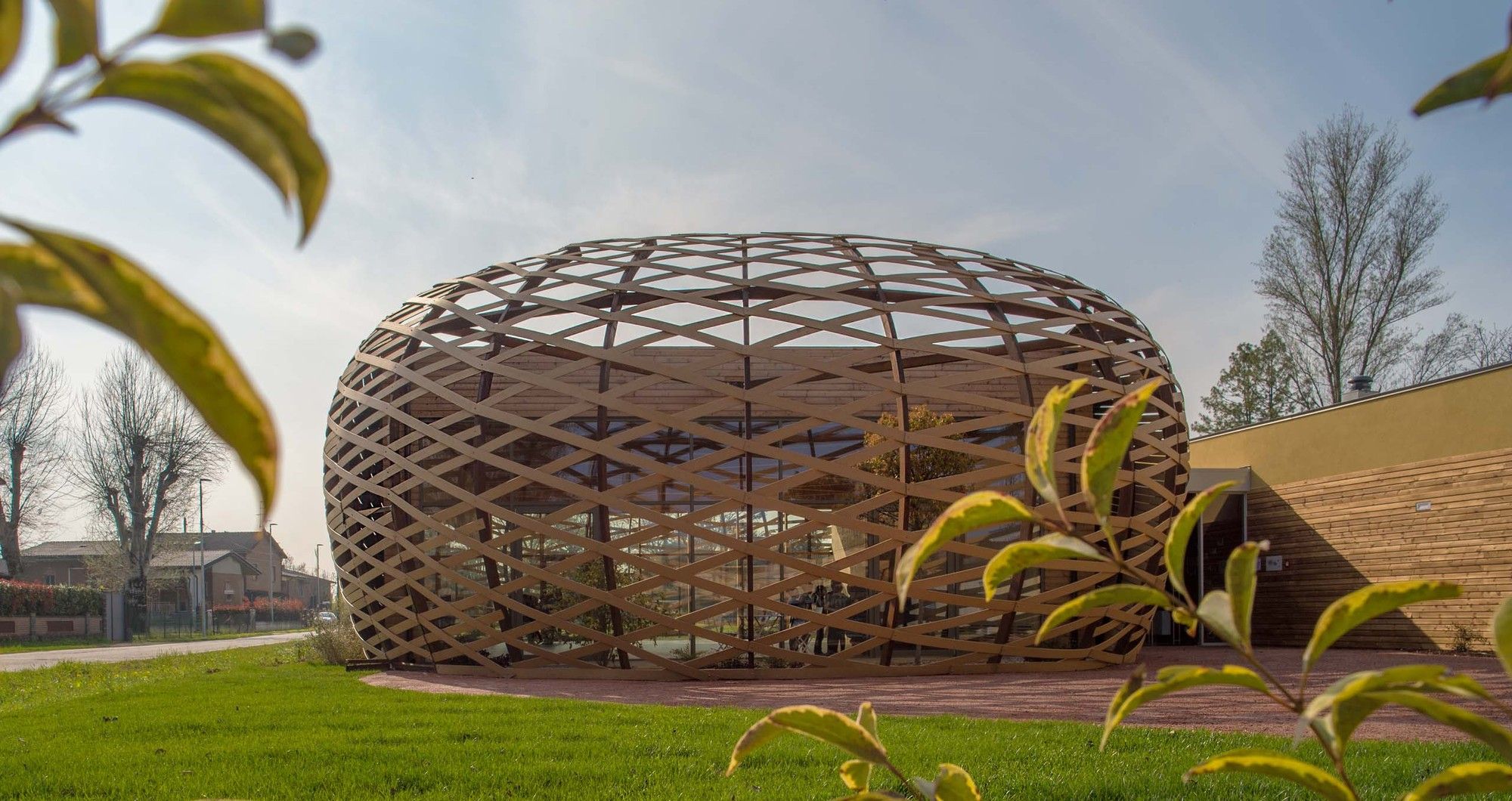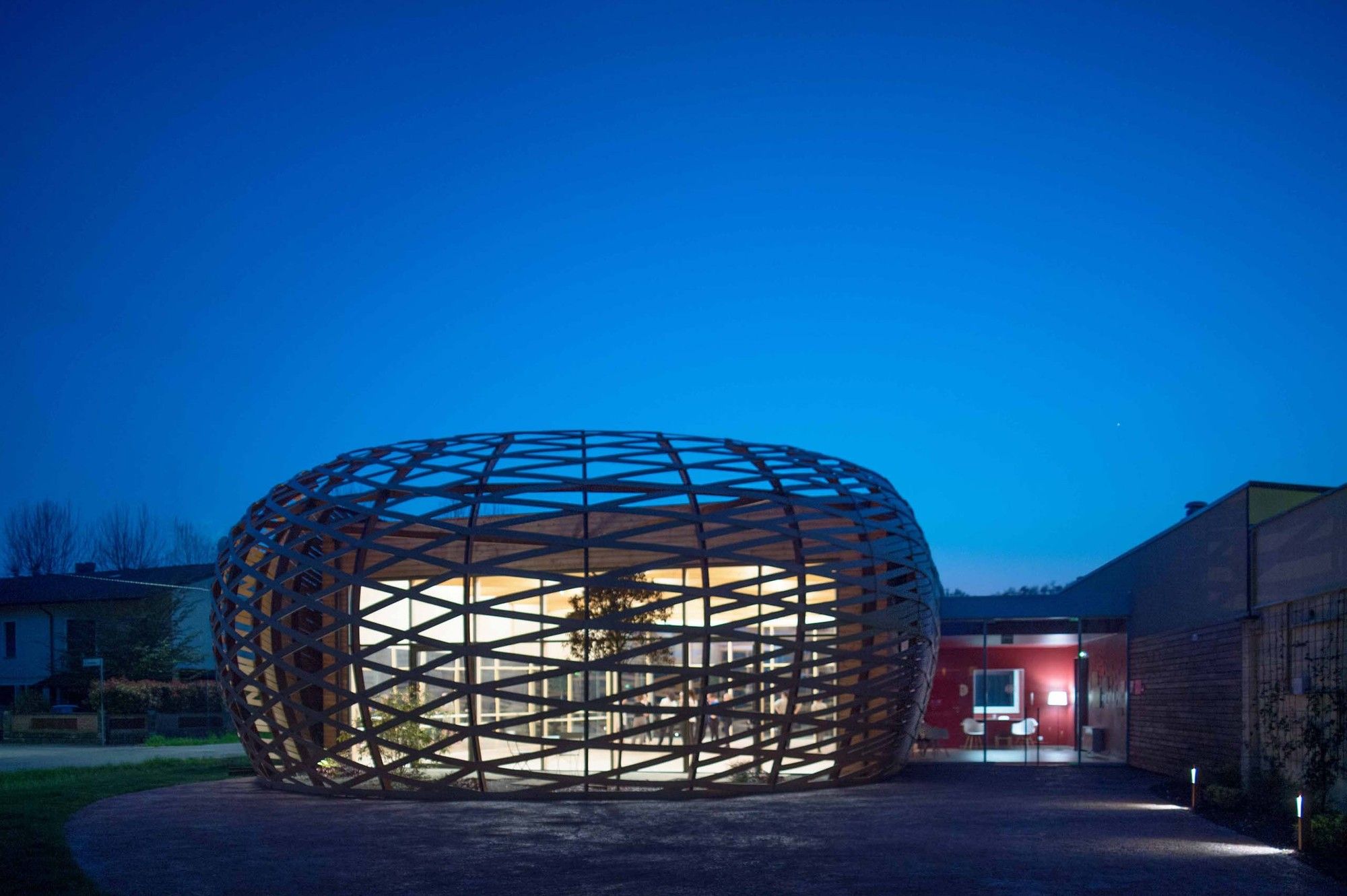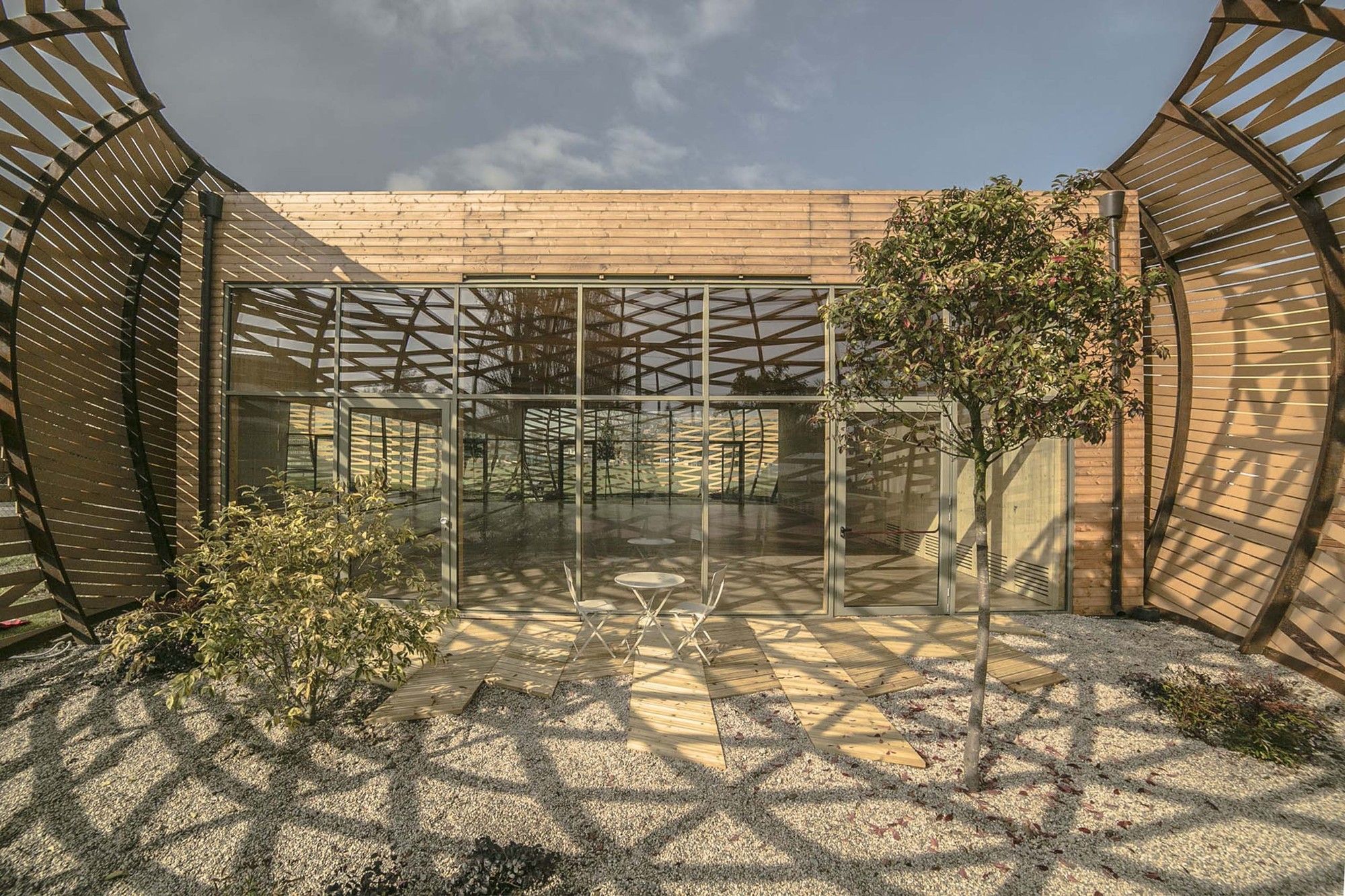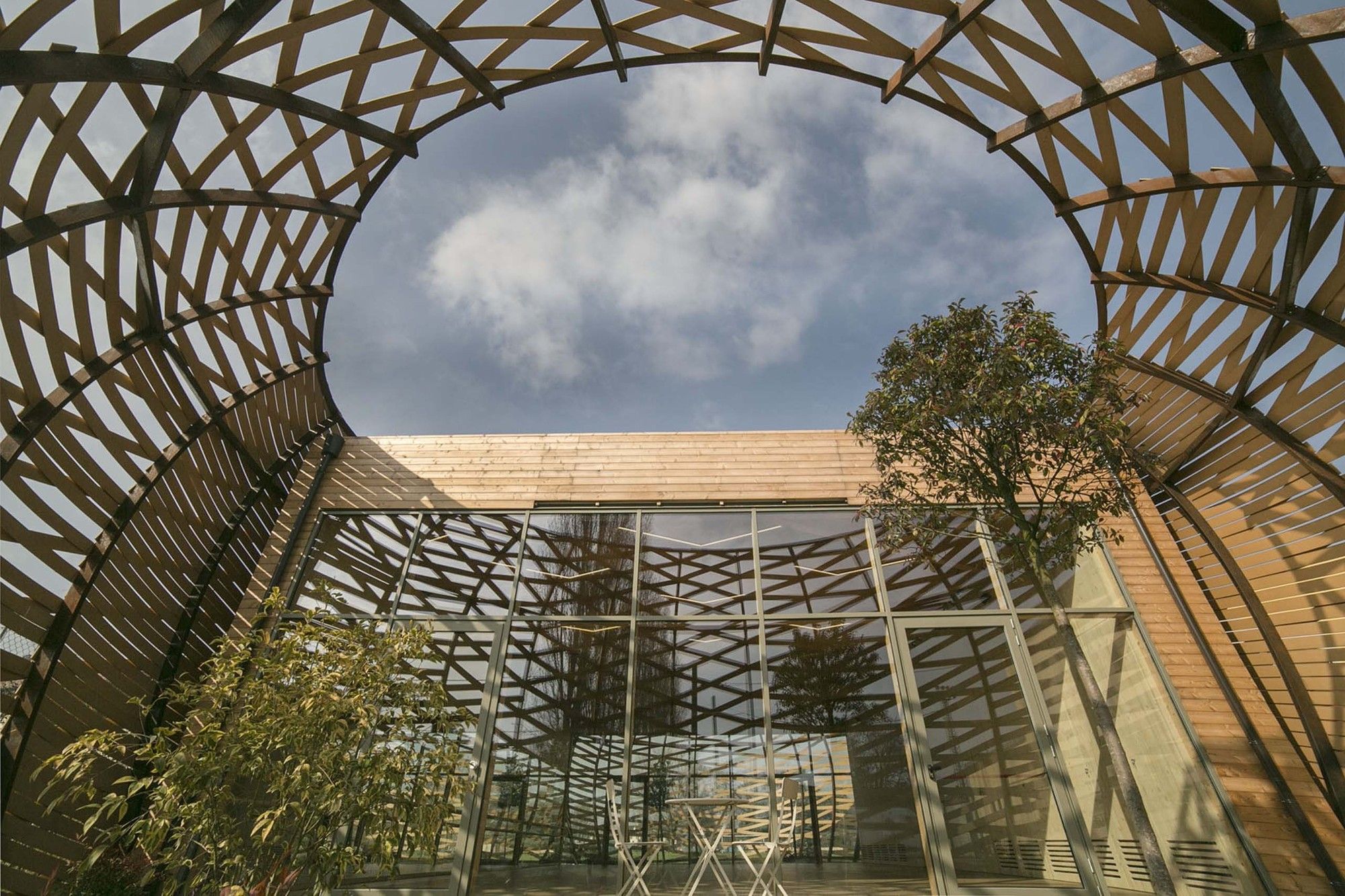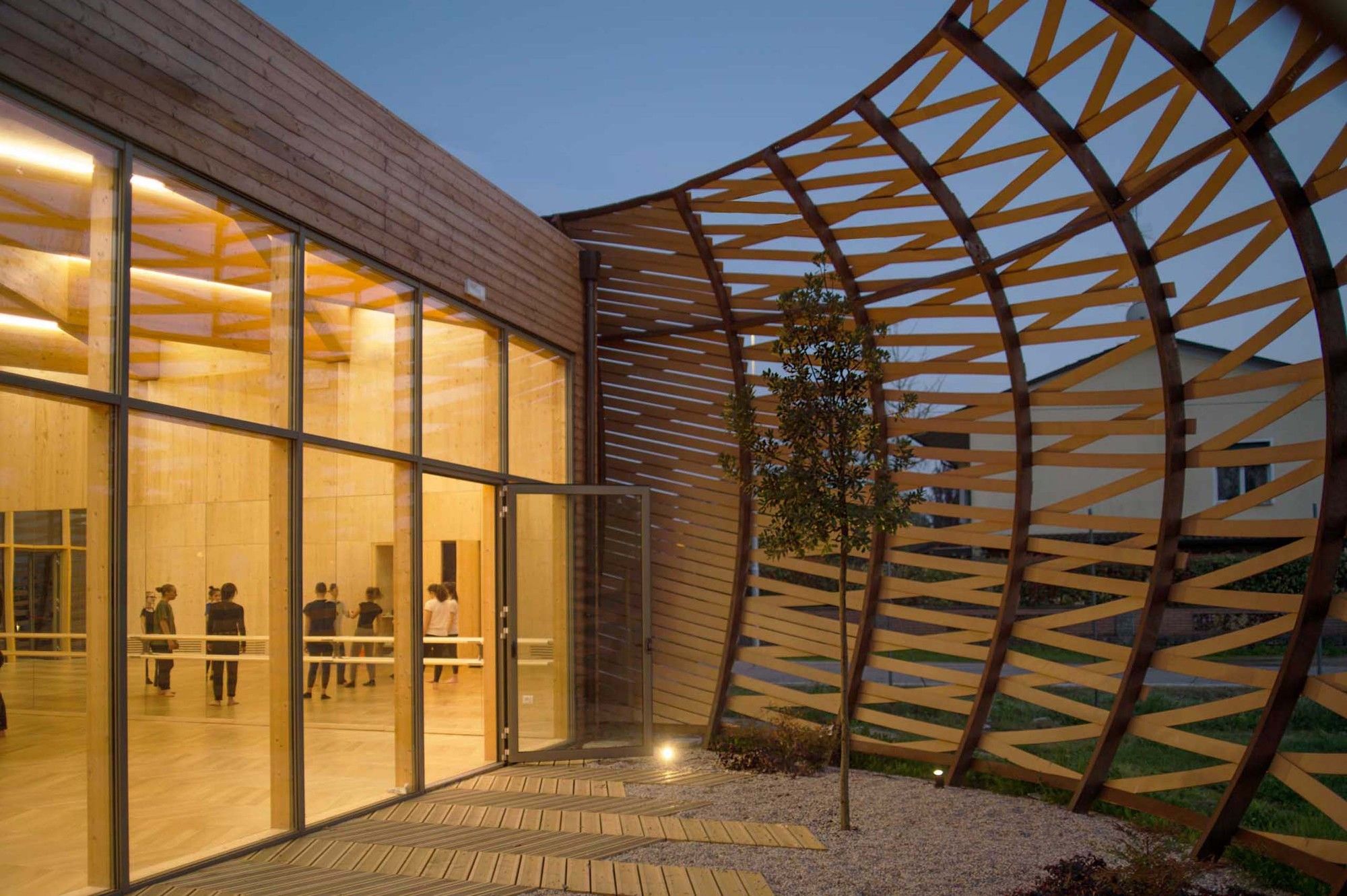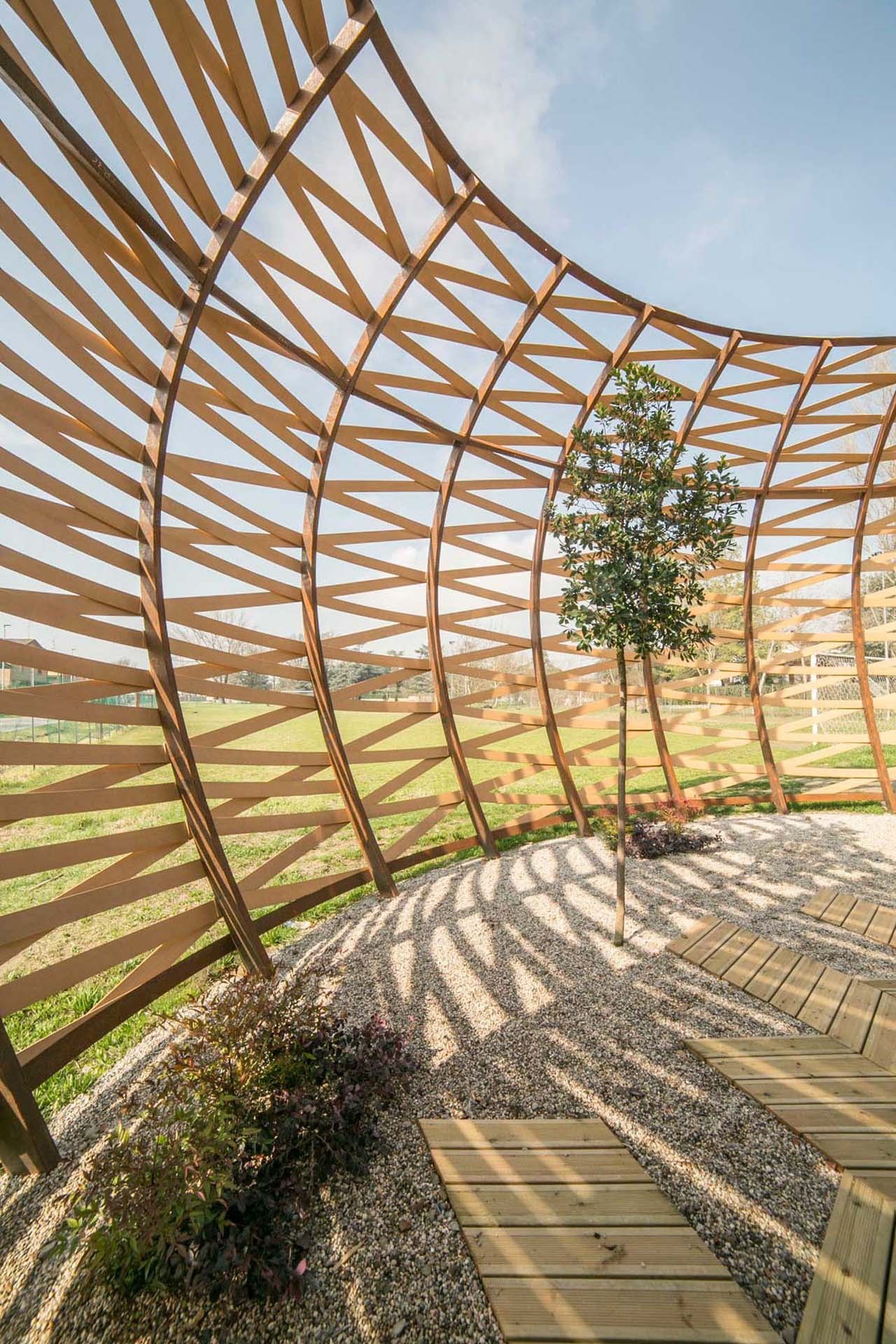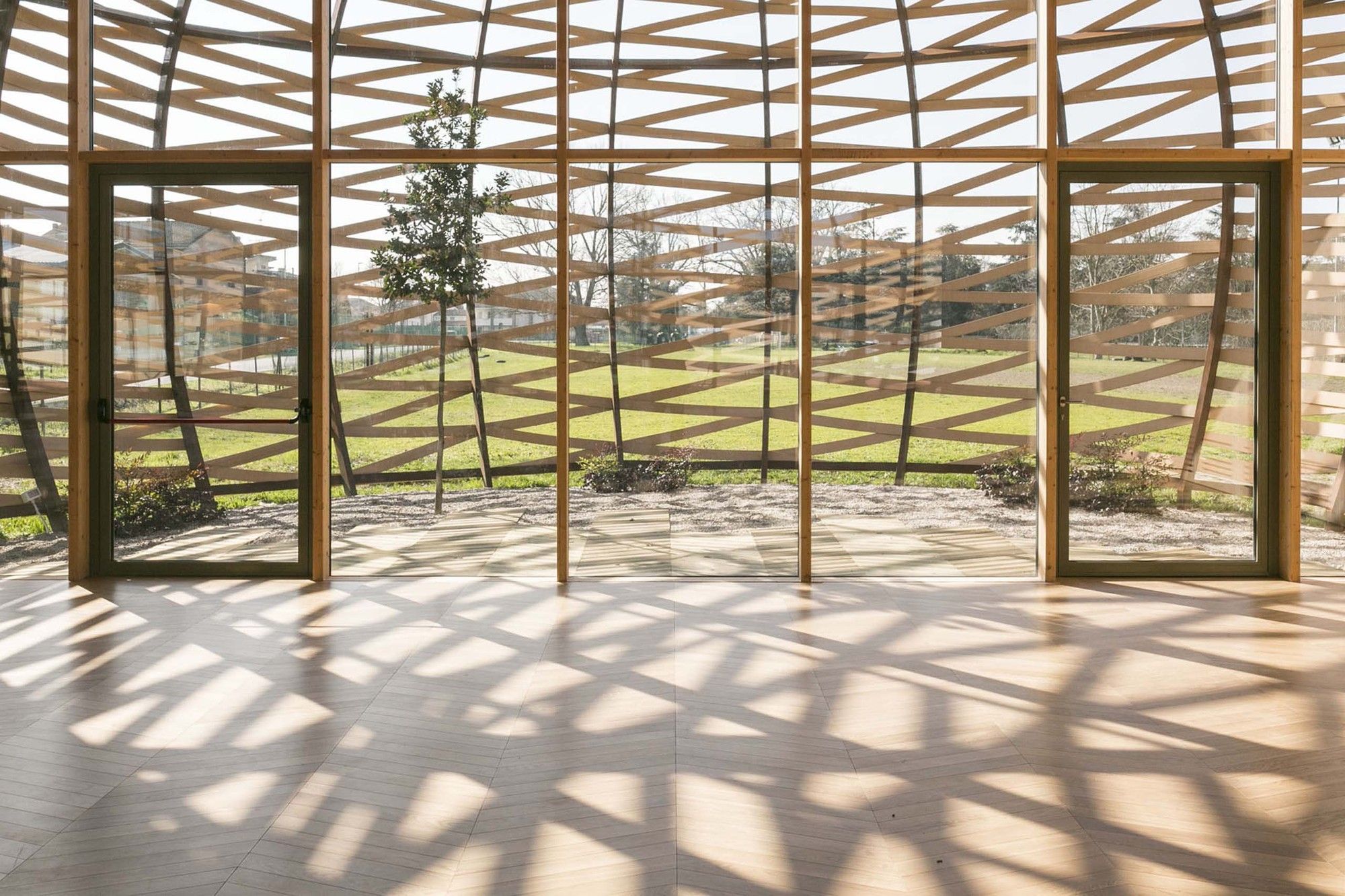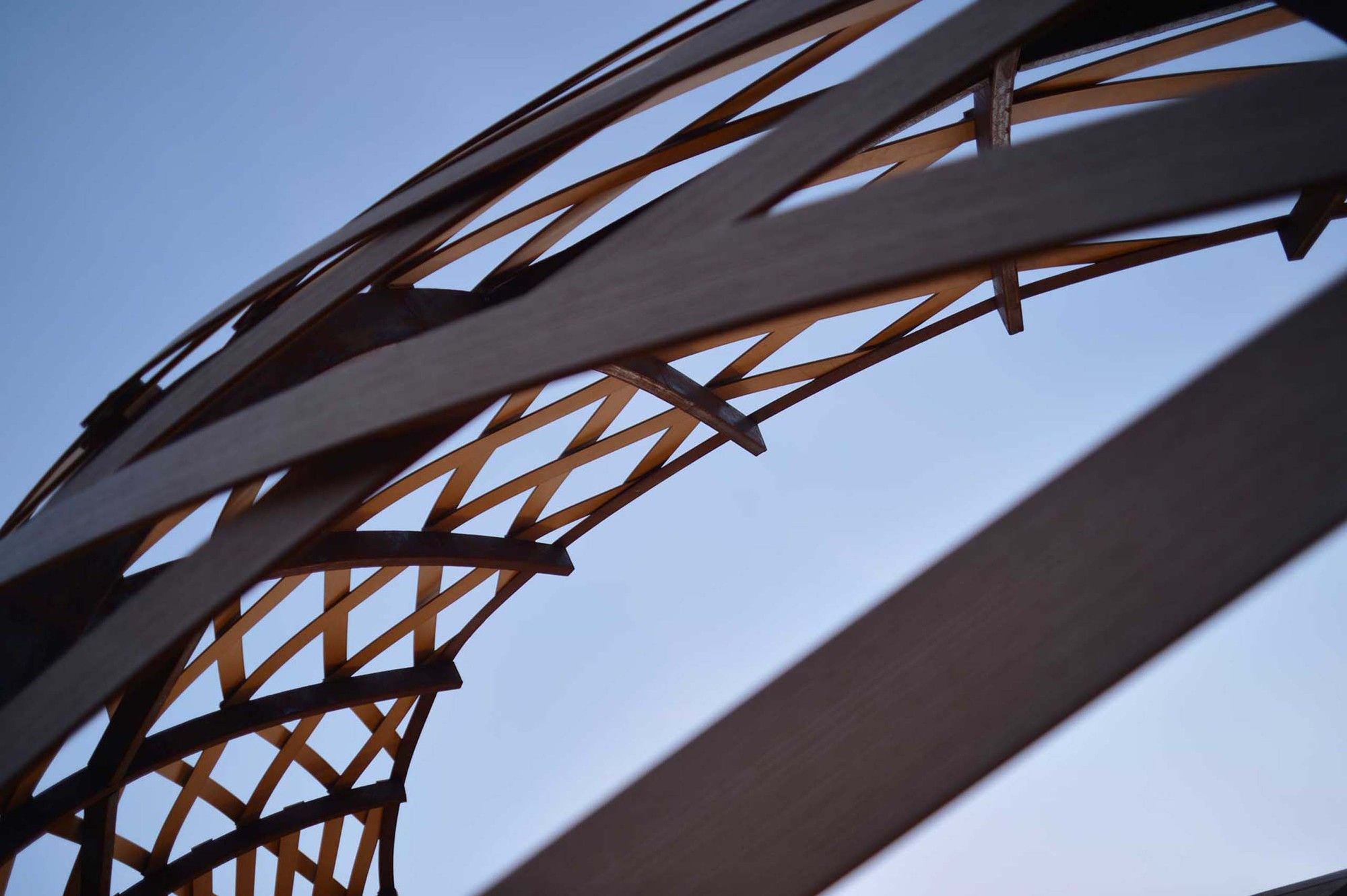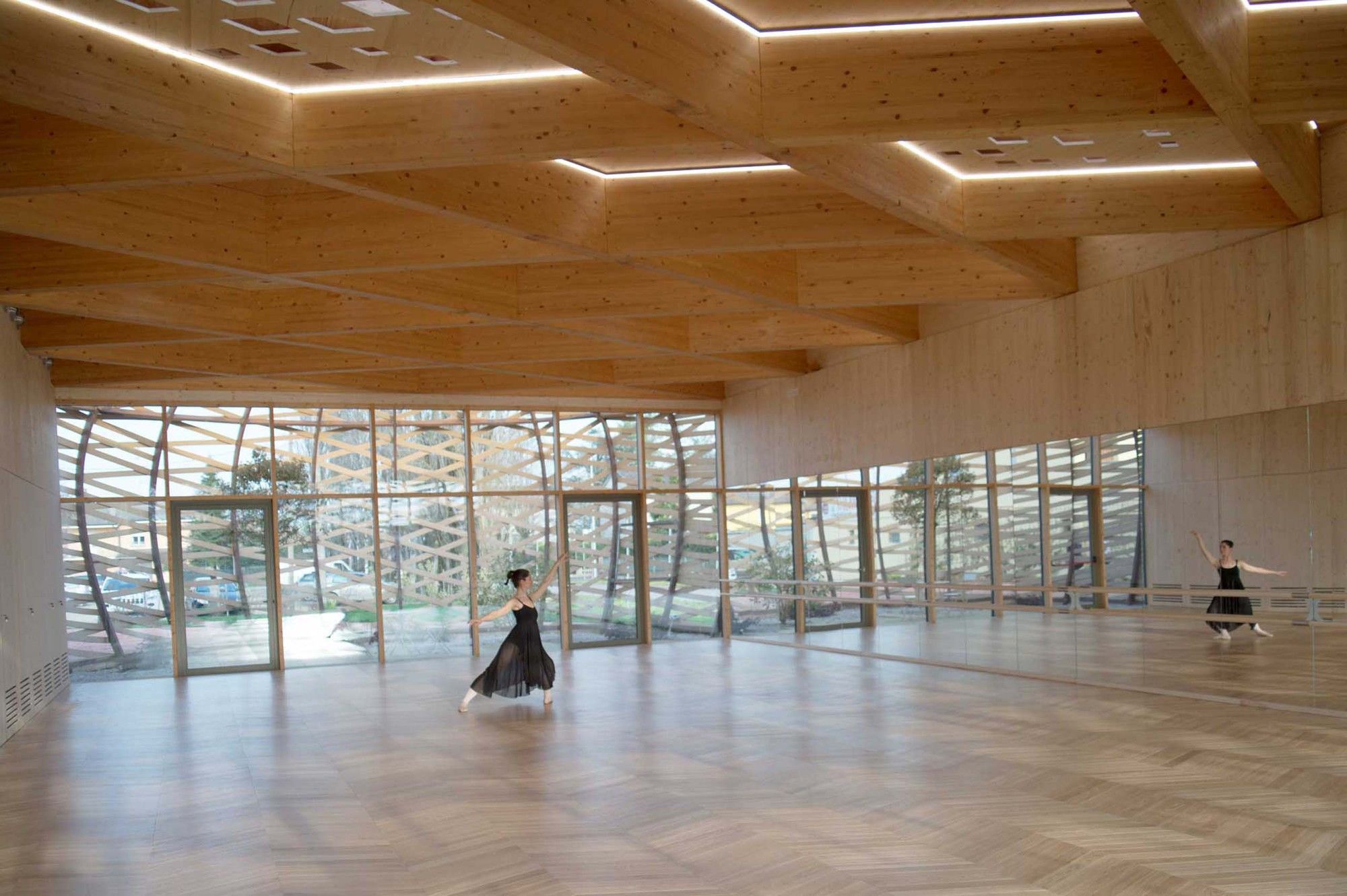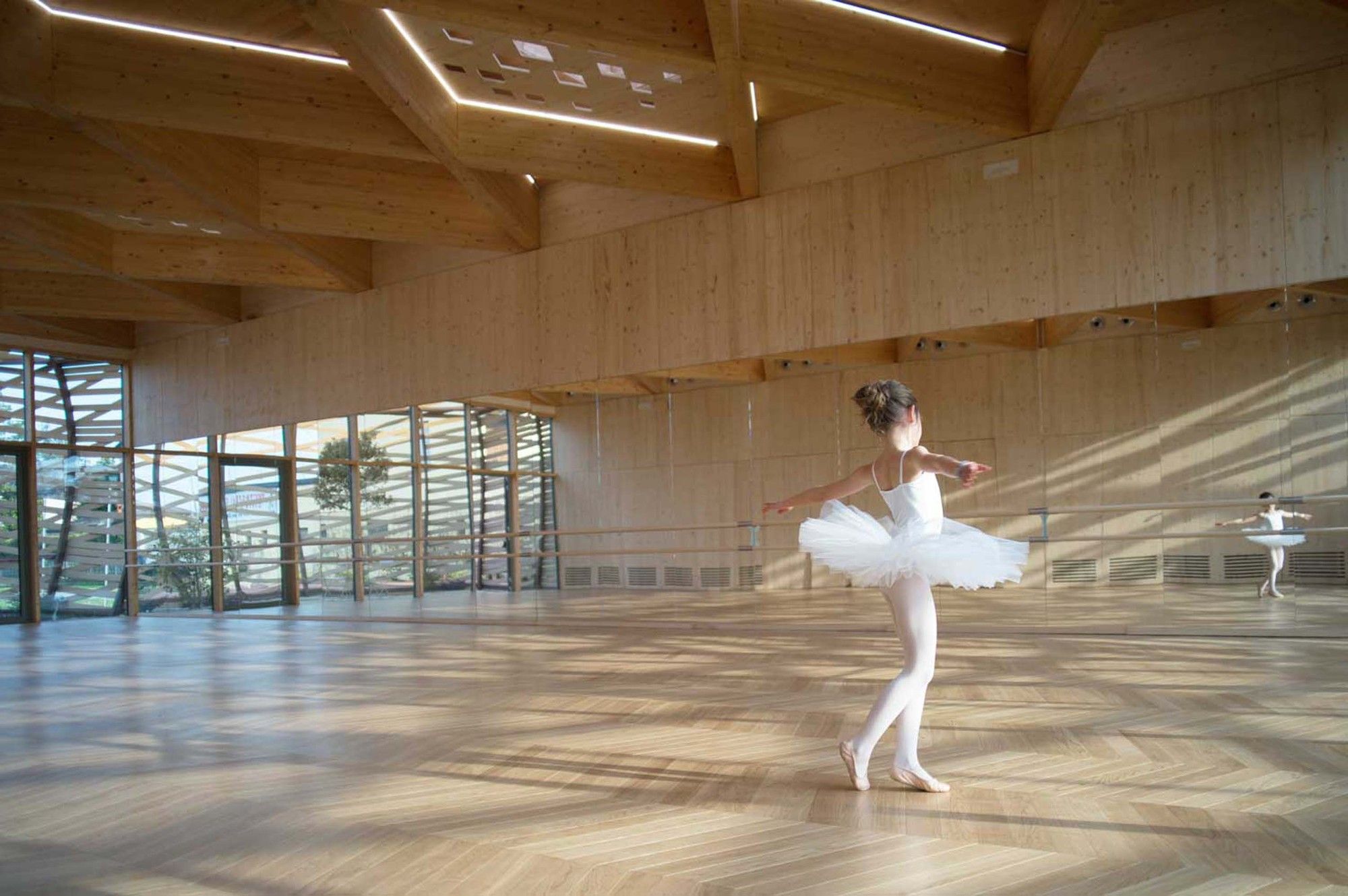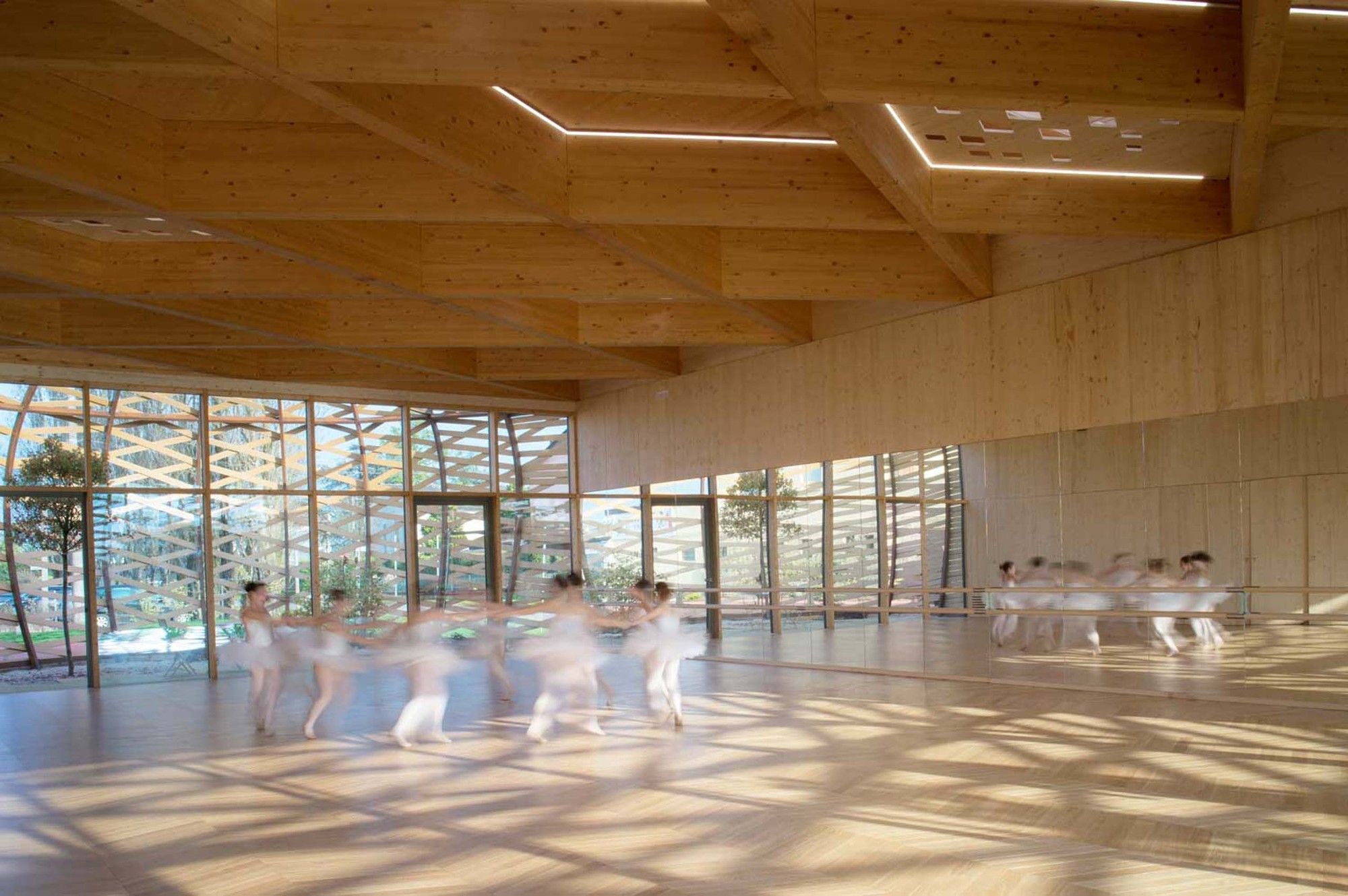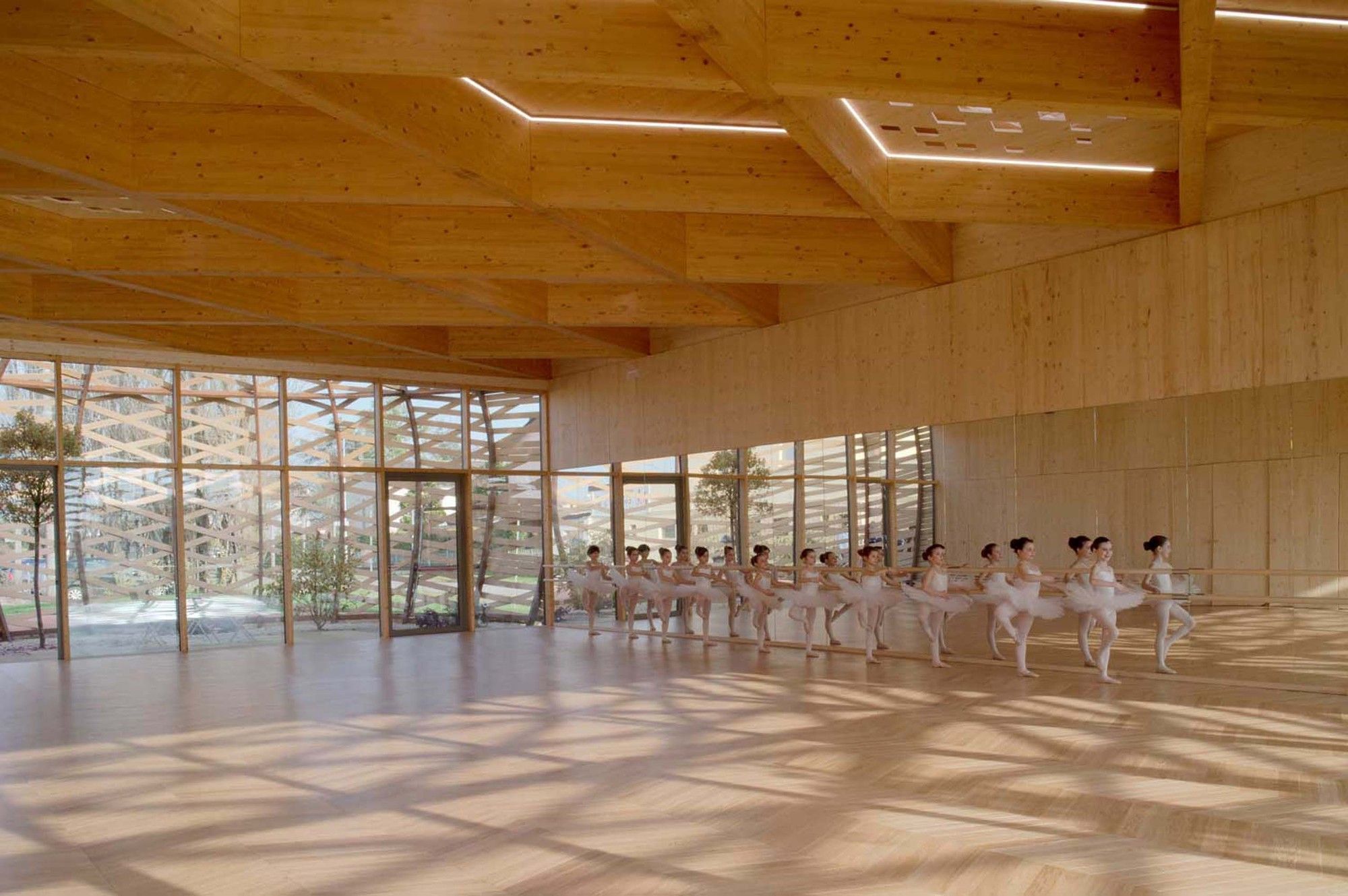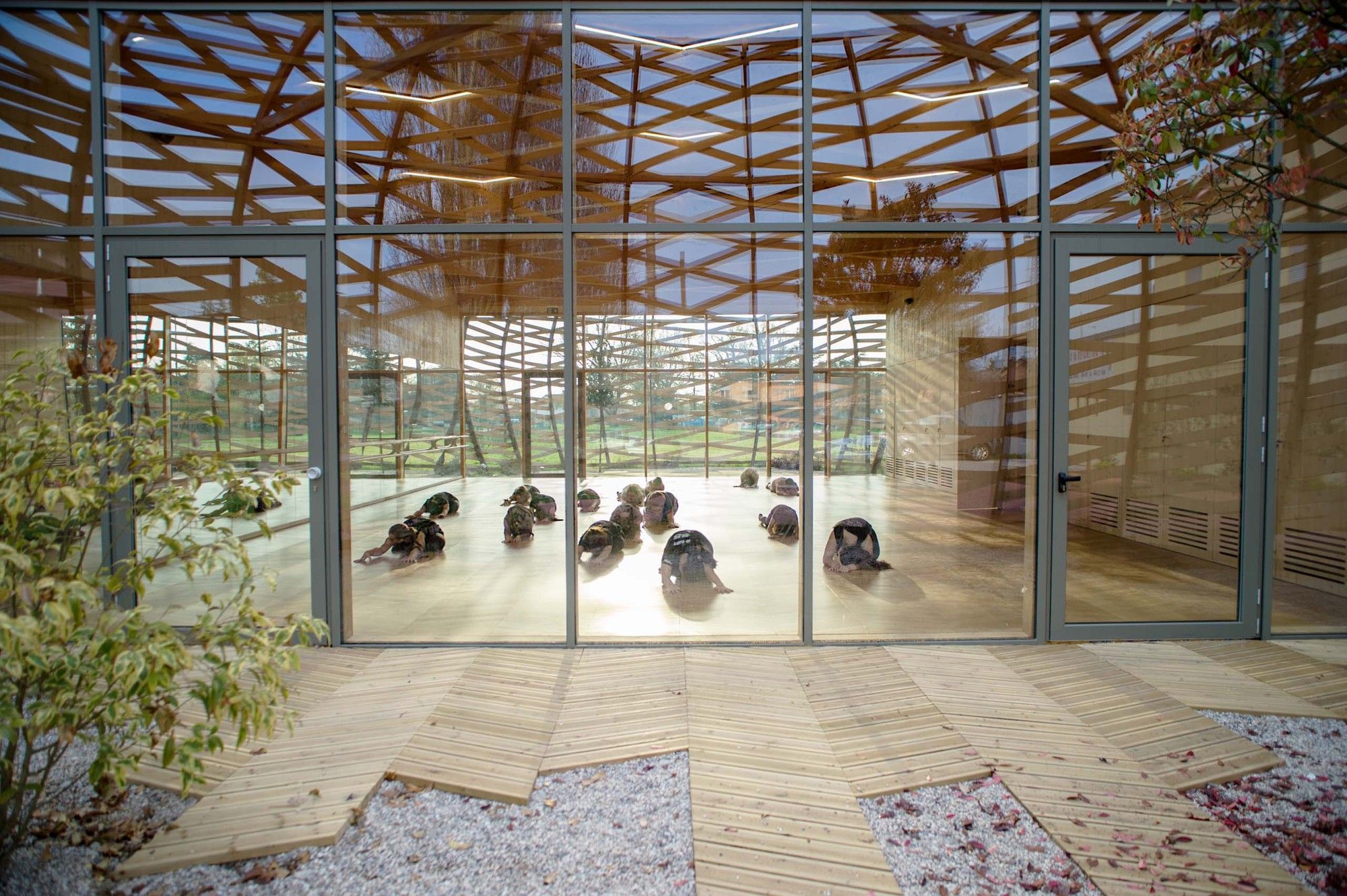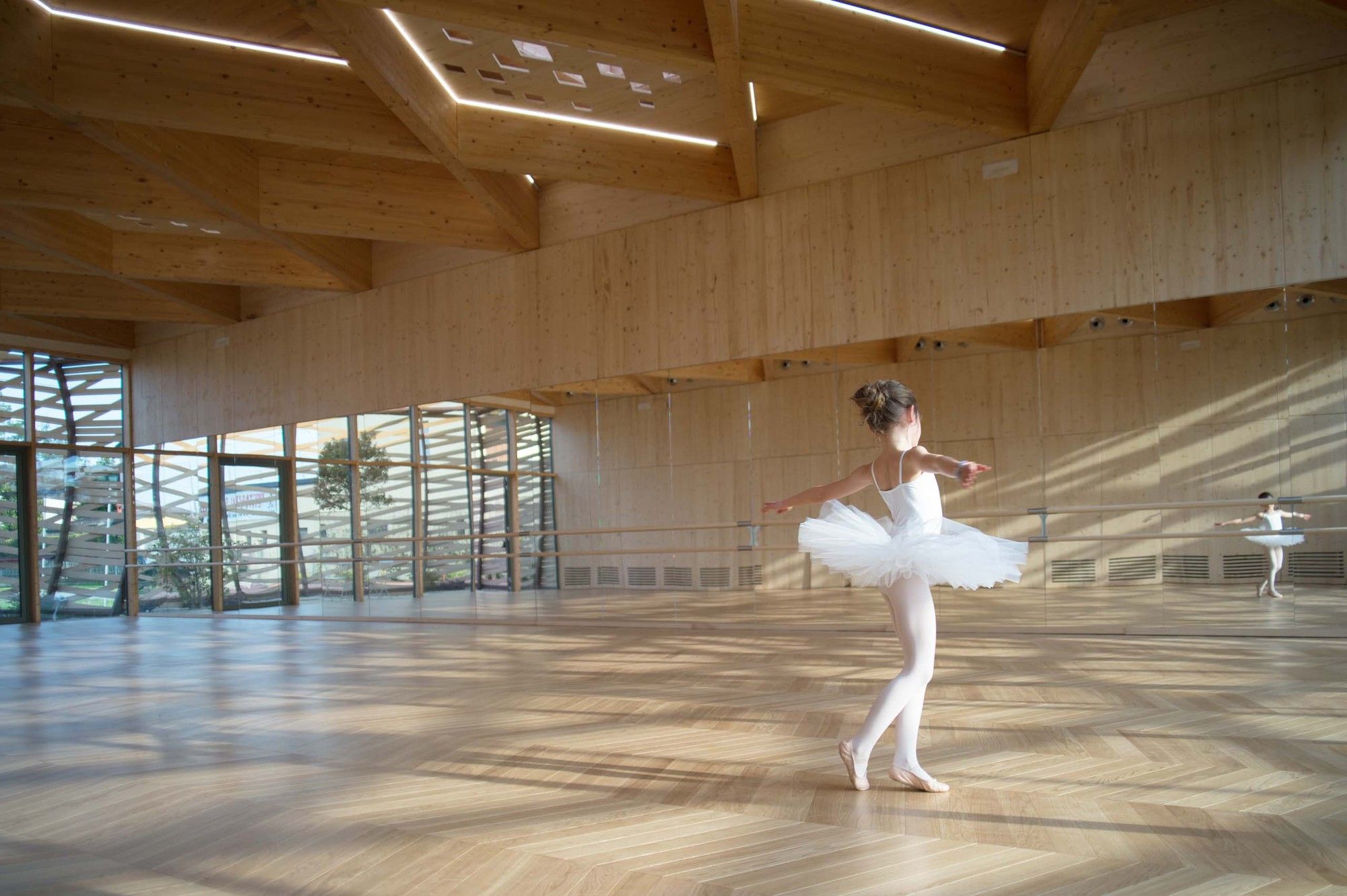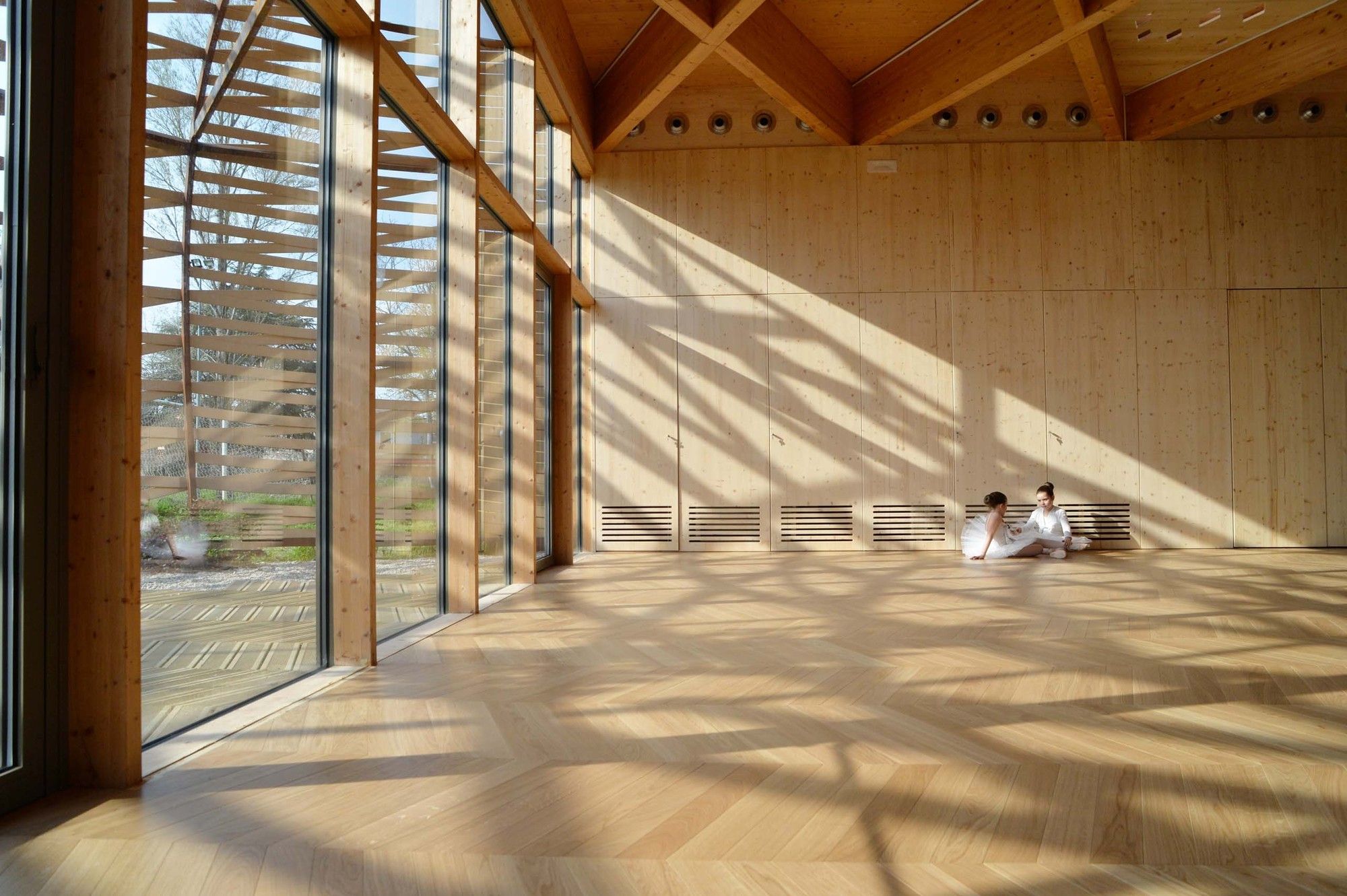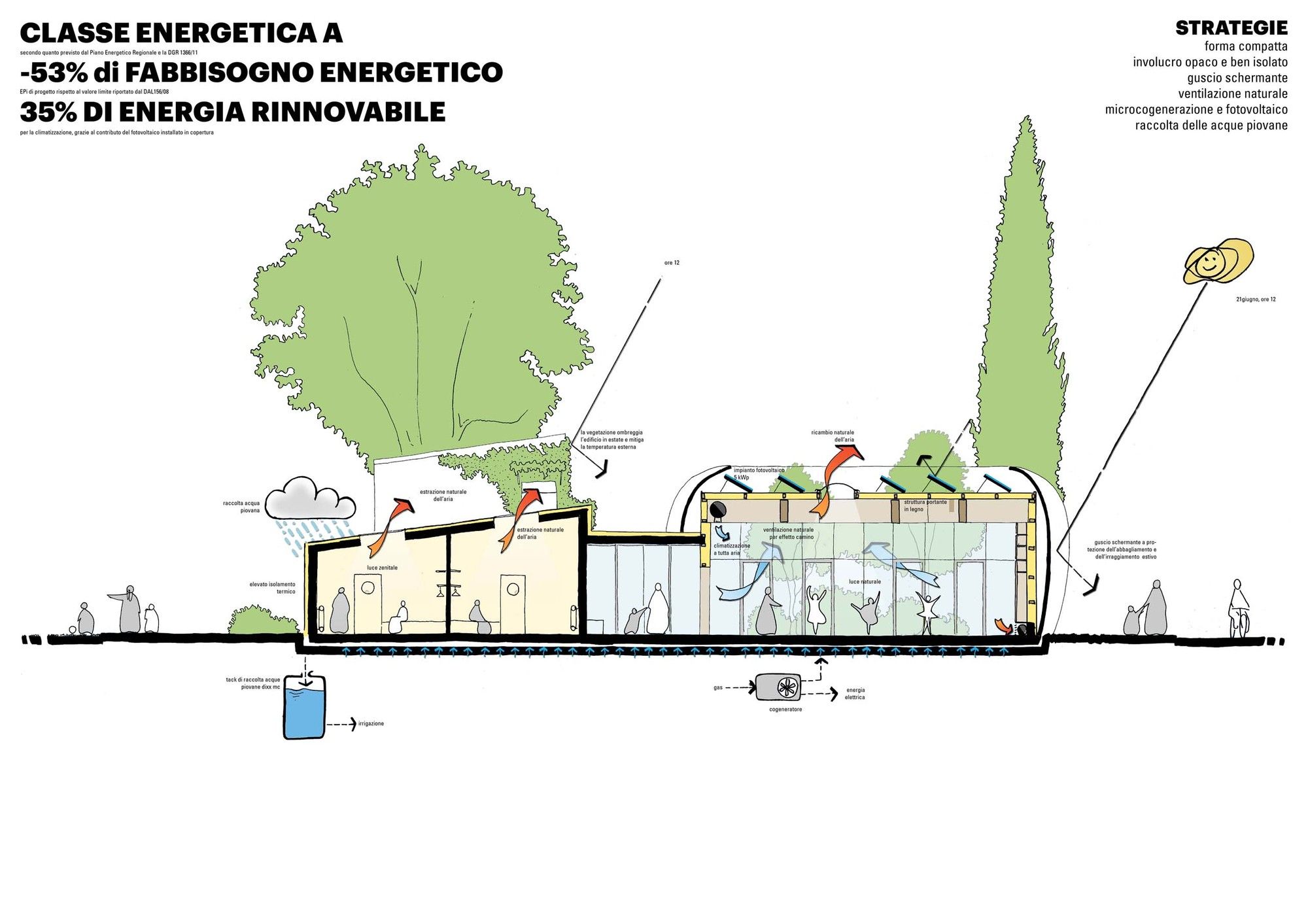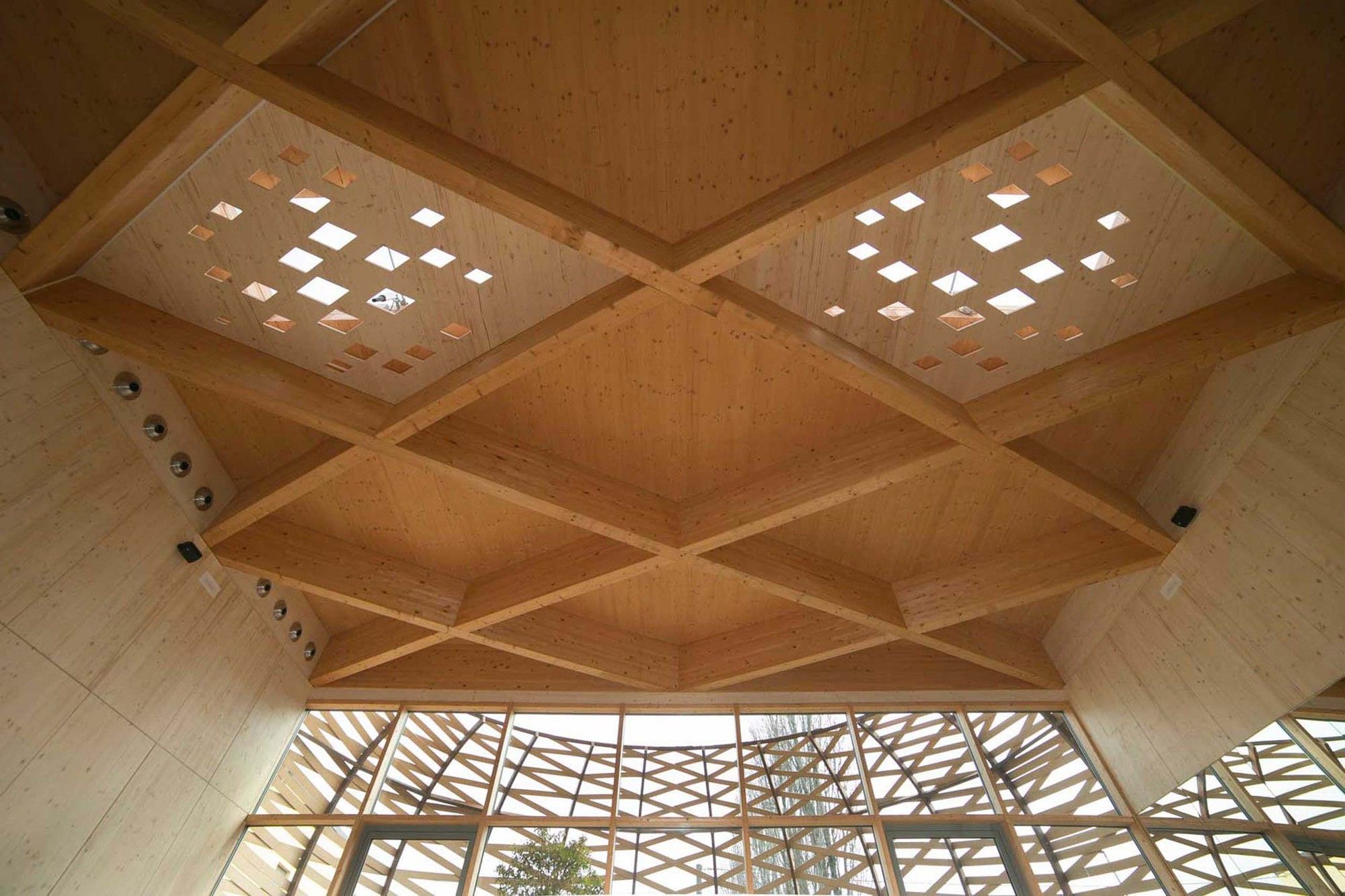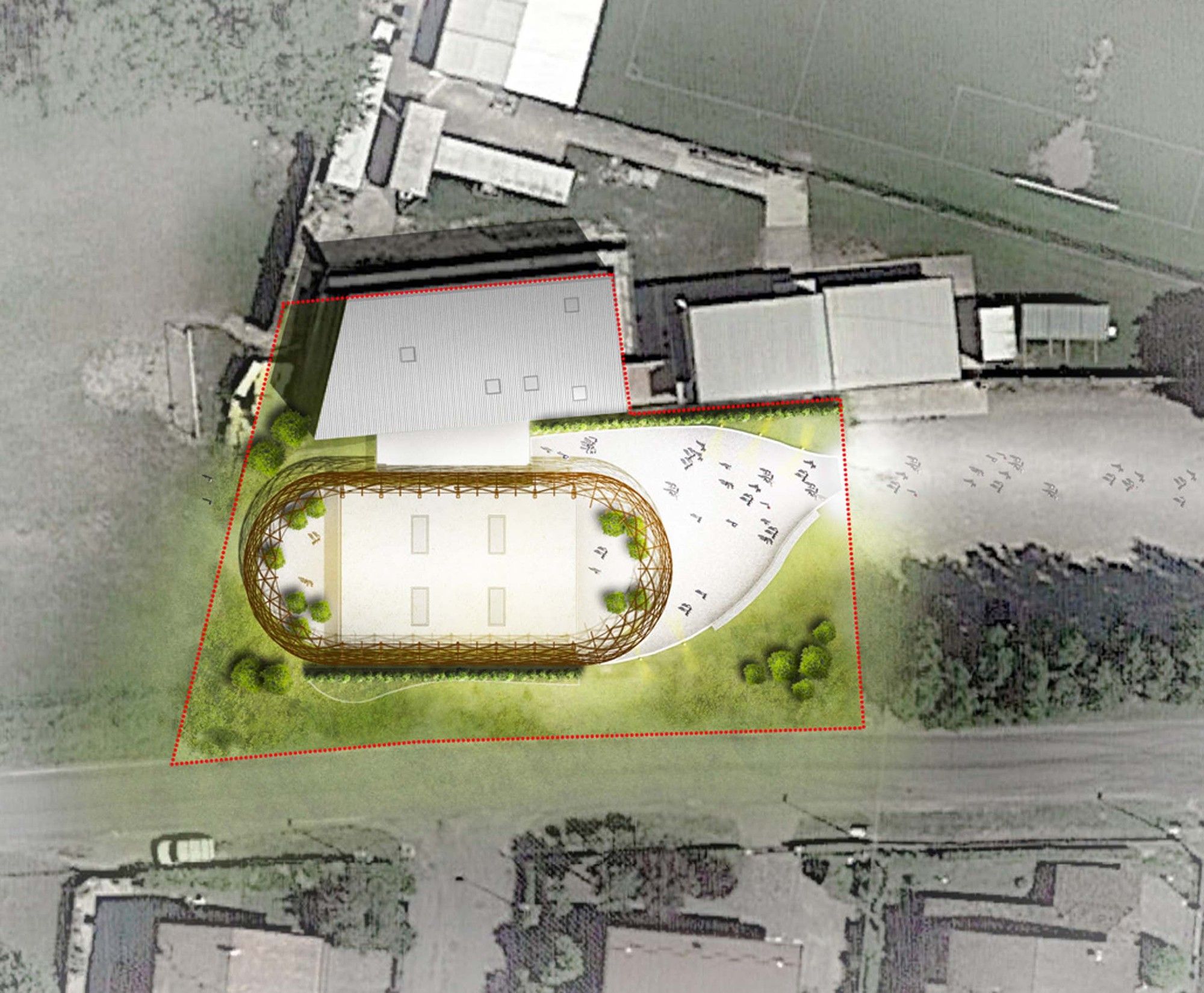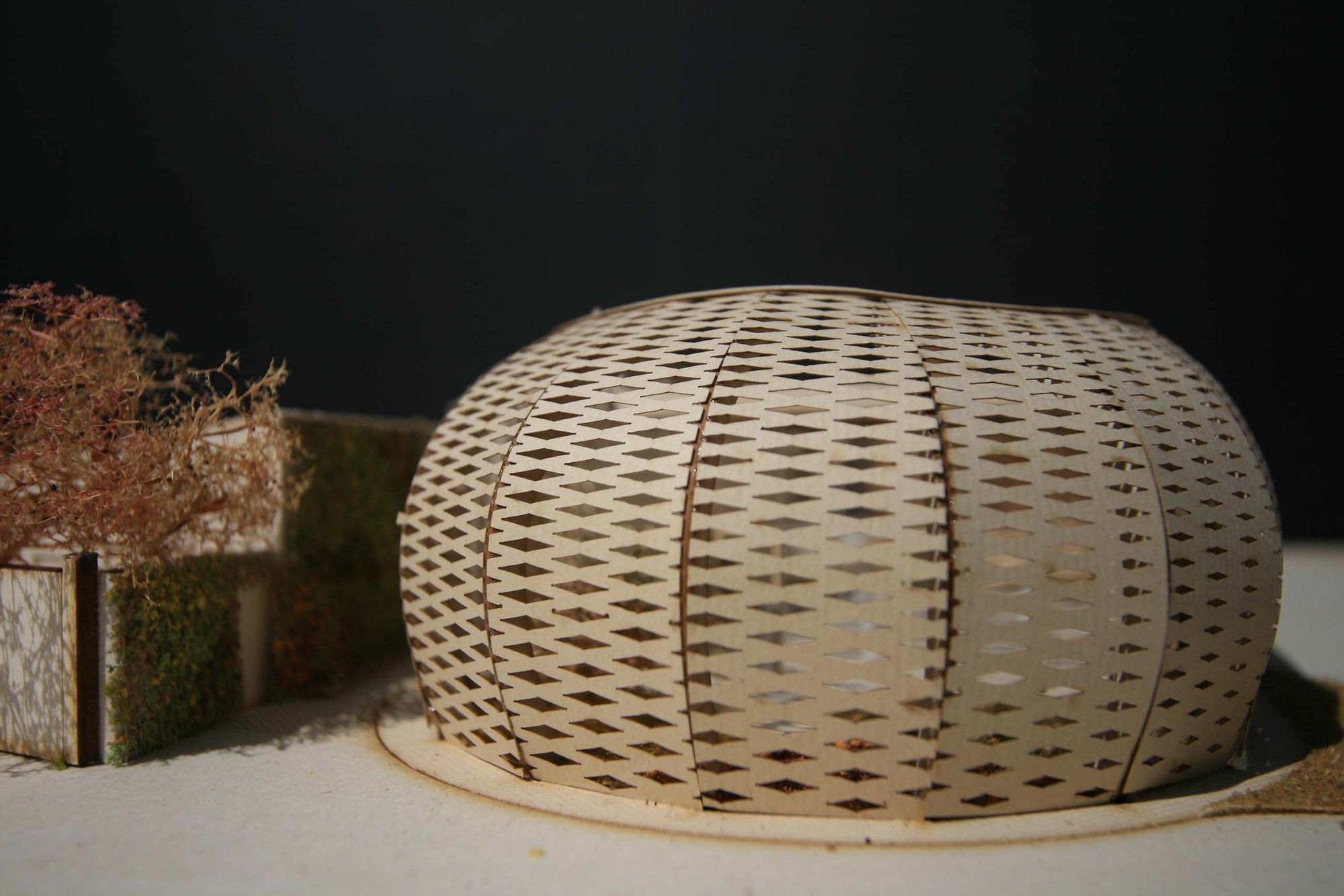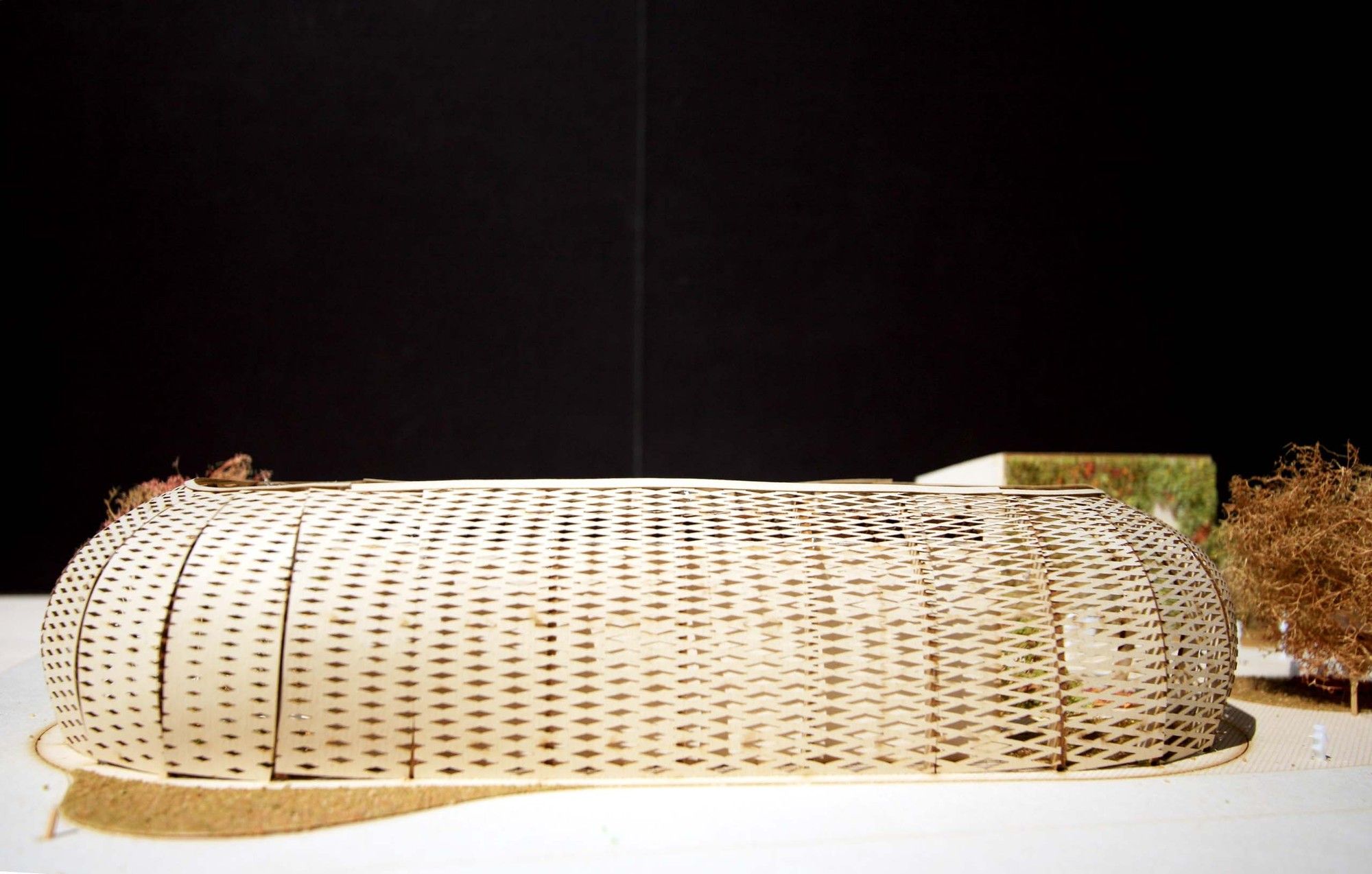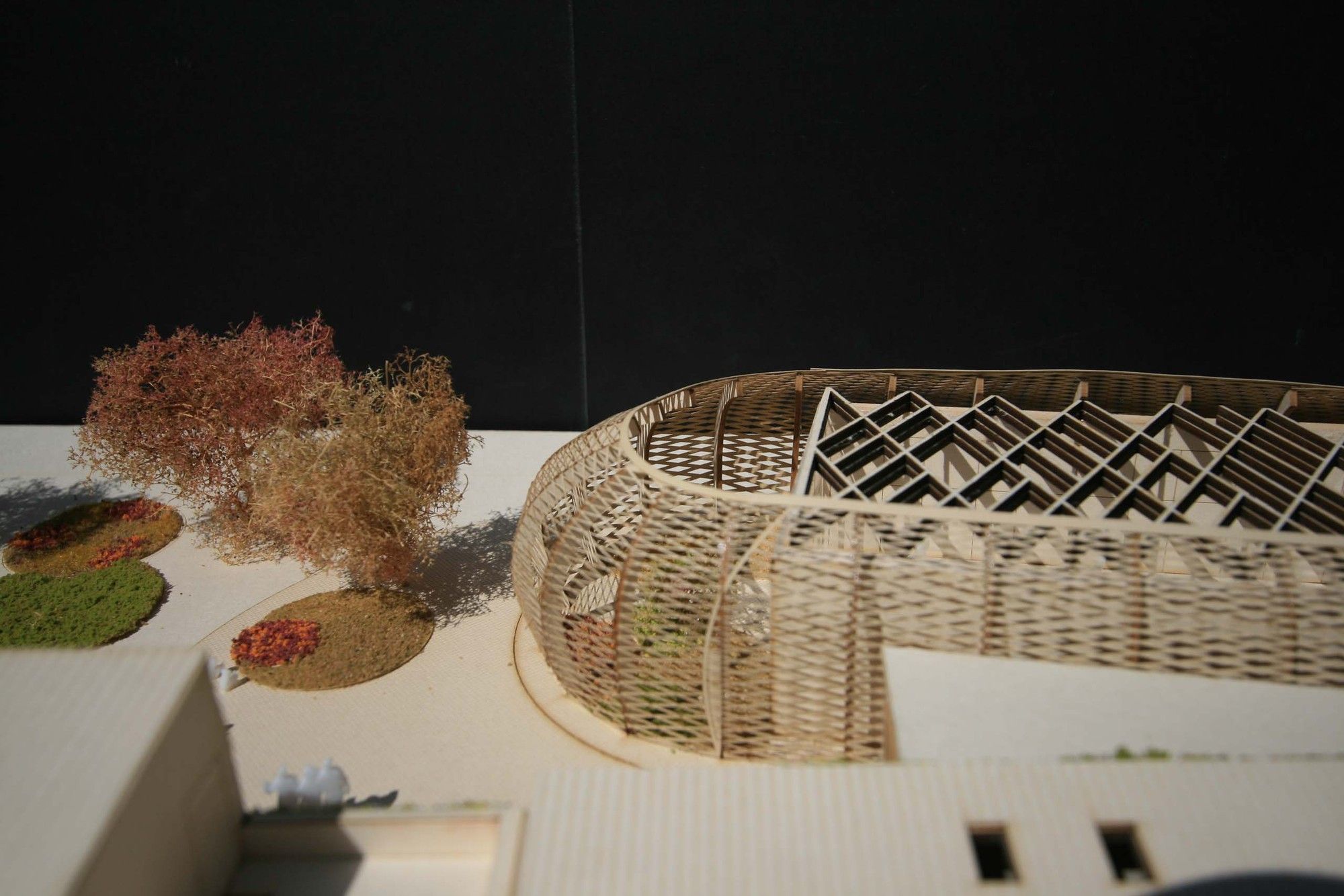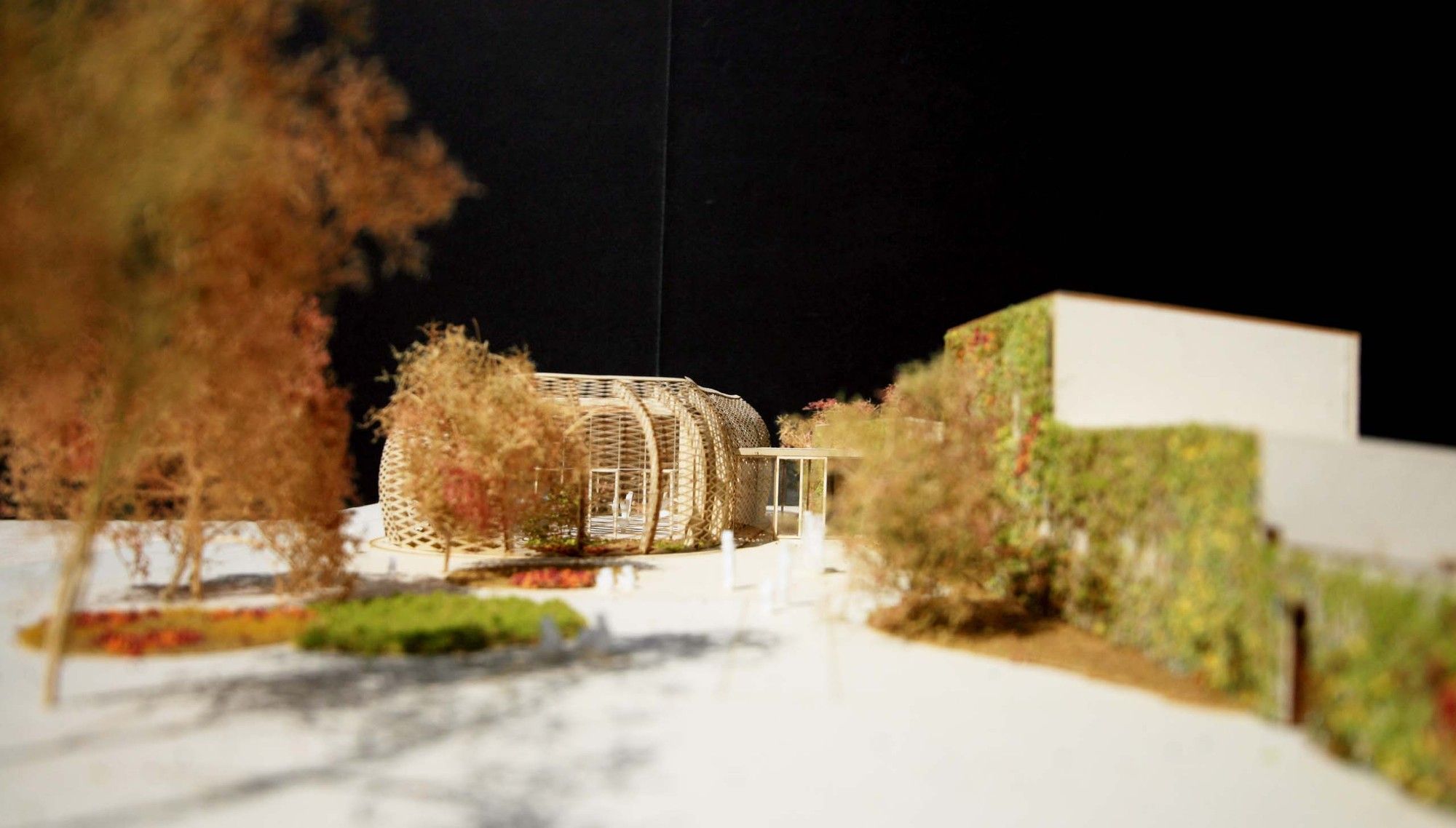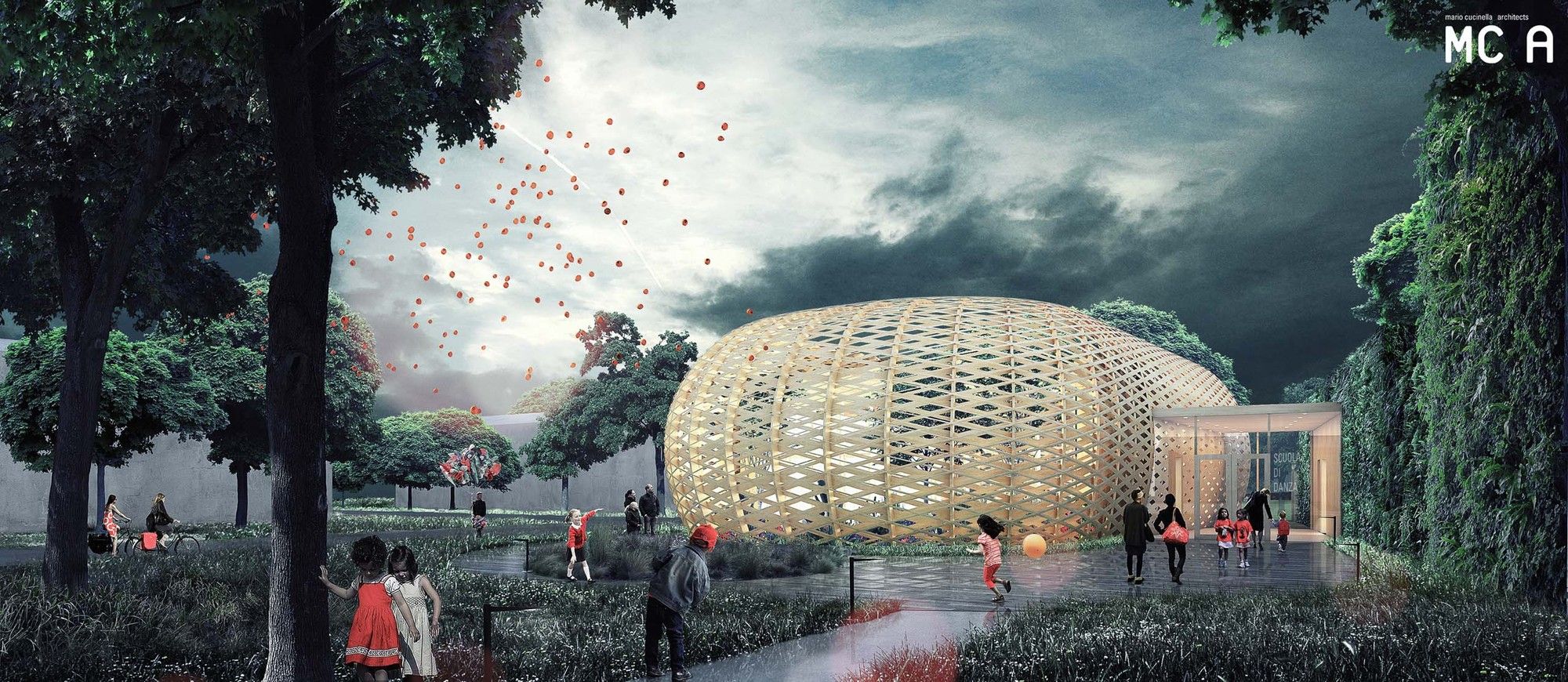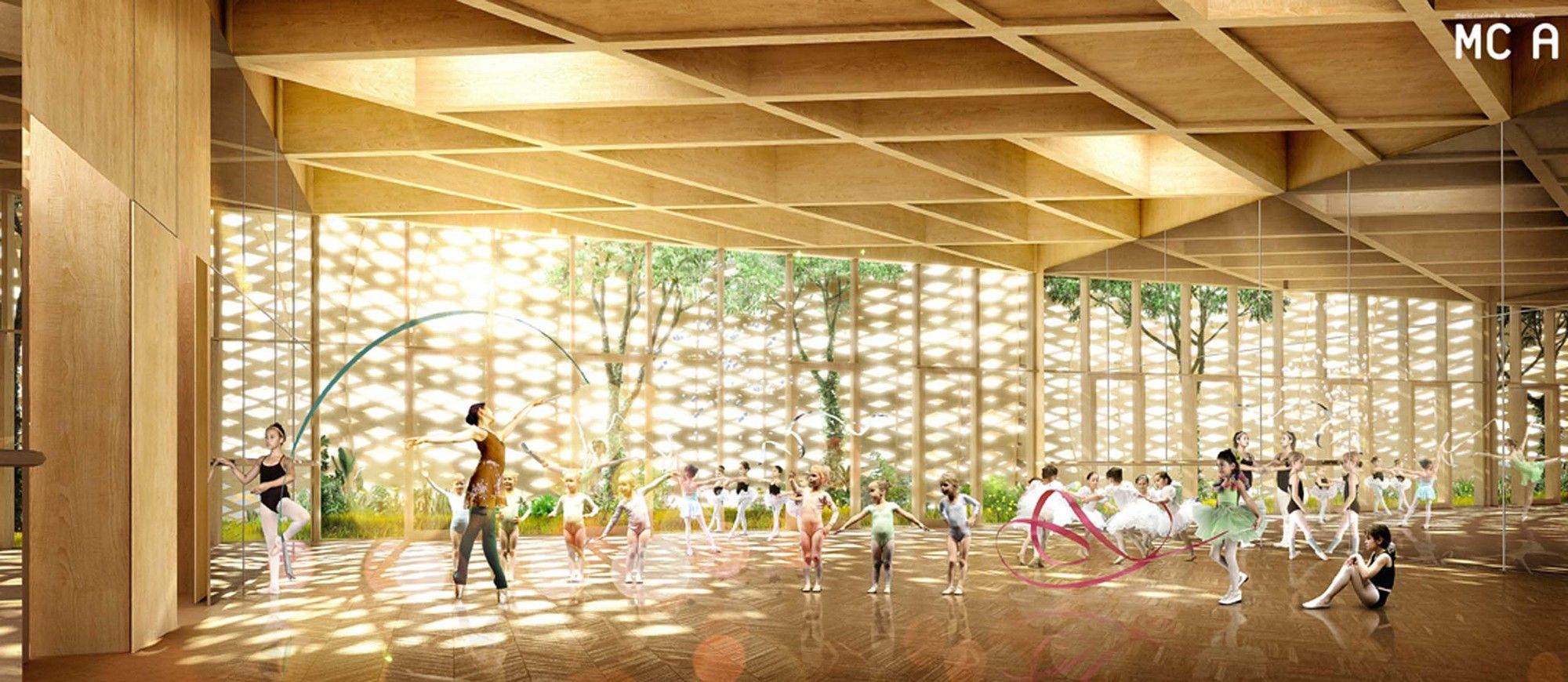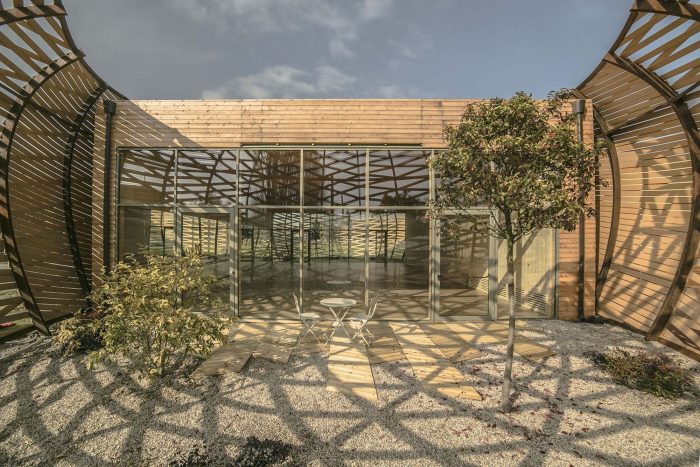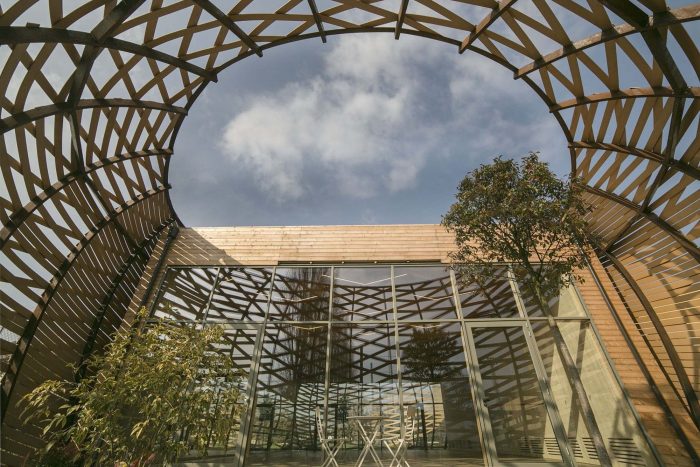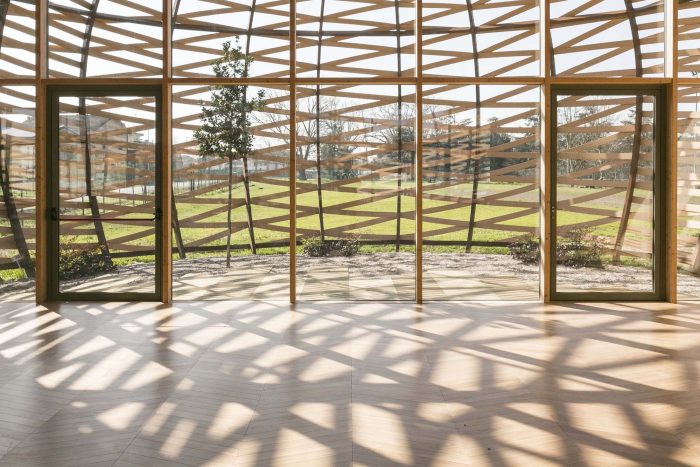Workshop Ricostruzione – The New Dance School
Architecture and Plan. The new dance school is designed to replace the old building damaged by the earthquake. The building adopts a rectangular plan and is equipped with a fir wood structure and wood veneer. The use of natural materials is conducive to reducing the damage to the environment and protecting the fragile ecosystem after the earthquake.
A small transparent volume on the east and west sides connects the new building with the dressing room. The glass area will house the entrance, the waiting area and the administrative office. The open dance room provides students with a wide view, and the roof can open skylights to facilitate natural ventilation and reduce energy consumption.
Community symbolic landmark. The dance school facade is woven with wood veneer. The curved external shading system provides shading while maintaining the overall simplicity of the building. The package on the facade also forms two small garden terraces, which helps to shield the internal space and ensure the privacy of the classroom.
Not only that, but the unique facade form also echoes the traditional weaving craftsmanship of the region and reflects the location of the dance school between the city and the countryside. At night, the building is lit like a lantern, warming people’s hearts, and unique architectural elements become people’s visual focus and symbolic landmarks.
Energy use and sustainability. The entire project is based on the principle of environmental sustainability and aims to reduce energy consumption and optimize indoor and outdoor comfort. Solar panels are installed on the roof to make full use of renewable and clean energy. The building’s compact shape and opaque envelope structure help reduce heat dissipation in winter, thereby minimizing the use of heating systems while ensuring optimal thermal comfort. The implementation of a series of energy-saving measures has reduced the demand for building energy by 53%, and the proportion of renewable energy in total energy consumption has reached 35%, reaching the energy level A.
Project Info:
Architects: MC A
Location: Reggio Emilia, Italy
Area: 500 m²
Project Year: 2018
Photographs: Fausto Franzosi, Bellipario Geraldina
